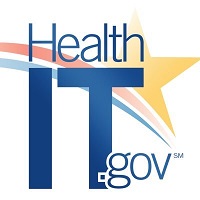 The US Department of Health and Human Services’ (@HHSGov) Office of the National Coordinator for Health Information Technology (ONC) released the ONC Guide to Getting and Using your Health Records, a new online resource for individuals, patients, and caregivers.
The US Department of Health and Human Services’ (@HHSGov) Office of the National Coordinator for Health Information Technology (ONC) released the ONC Guide to Getting and Using your Health Records, a new online resource for individuals, patients, and caregivers.
This new resource supports both the 21st Century Cures Act goal of empowering patients and improving patients’ access to their electronic health information and the recently announced MyHealthEData initiative. The new initiative, led by the White House Office of American Innovation and supported by ONC, empowers patients by giving them control of their healthcare information. Other participants in the effort include the Centers for Medicare & Medicaid Services, National Institutes of Health, and the Department of Veterans Affairs.
“It’s important that patients and their caregivers have access to their own health information so they can make decisions about their care and treatments,” said Don Rucker, M.D., national coordinator for health information technology. “This guide will help answer some of the questions that patients may have when asking for their health information.”
Individuals’ ability to access and use their health information electronically is a measure of interoperability and a cornerstone of ONC’s efforts to increase patient engagement, improve health outcomes, and advance person-centered health.
In fact, a new ONC data brief – PDF shows that in 2017, half of Americans reported they were offered access to an online medical record by a provider or insurer. This is up from 42 percent in 2014. Over half of individuals who were offered online access viewed their record with the past year. Eight in 10 of the individuals who viewed their information rated their online medical records as both easy to understand and useful for monitoring their health. These positive perceptions may be attributed to individuals’ varied use of online medical records, including viewing test results; managing their health needs with greater convenience; communicating with their health care provider; self-management and treatment decision-making; and contributing information to and correcting errors in their medical record.
However, challenges remain. Almost half of Americans in 2017 who were offered access to an online medical record did not access their record, frequently citing a perceived lack of need as one of the reasons for not accessing their record. Consumers may not understand their right (under the HIPAA Privacy Rule) to access their health information nor realize the benefits of accessing their health information. ONC outlined the challenges patients face in accessing their health information electronically in a report – PDF released in June 2017.
“The ONC Guide to Getting and Using your Health Records” informs patients and consumers about the value of health information, and provides individuals with clear, actionable advice on how to:
- Get their health record, including offering tips through the process of accessing their records electronically,
- Check their health record to make sure it is complete, correct, and up-to-date, and
- Use their electronic health records, such as sharing their records to better coordinate their care and using apps and other digital technologies to better manage and improve their health.
To view the ONC Guide to Getting, Checking, and Using your Health Records, visit: HealthIT.gov.
Additional information on individuals’ right to access their health information under the HIPAA Privacy Rule is available at the HHS website.
